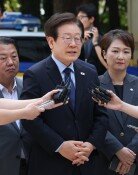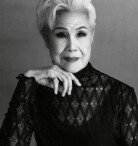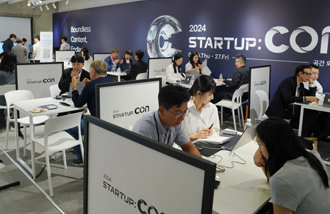[Editorial] Uris Education Agenda
The Uri Party, the governing party in Korea, has been dictatorial in making decisions on educational matters. Now it has become so domineering that those outside the party can no longer tolerate such a manner. The ruling party has been displaying a self-important and arrogant attitude by churning out excessively drastic and radical educational policies and measures. There are obvious signs, all of which indicate that the ruling party is undermining the very root of education in Korea. Since President Roh Moo-hyun came to power, the state has more frequently interfered with the education system than ever. Those in education are grumbling that the current administration is damaging educational autonomy by exercising the greatest influence since the end of the last military dictatorship. History shows that no country improves its competitiveness in education with excessive interference. Without change in its arrogant manner, the governing party will only contribute to Koreas falling global competitiveness.
The Uri Party is working on a bill that aims to force nearly 40 national universities to consolidate into about 10 institutions. According to the plan of the ruling party, each of the 10 schools will play a central role in providing higher education in its area. Though not unnecessary, this coercive method is hardly reasonable and could produce a lot of negative results. To maximize the potential benefits, any consolidation must be preceded by the process of identifying and preserving the strengths and increasing the structural efficiency of each university. The process will require consultations among universities. As many as 10 institutions have already decided to merge, and detailed plans are being drawn up to turn national universities into special corporations for reform purposes. Given these voluntary moves, it is quite bossy for the Uri Party to attempt to force the consolidation on schools.
Another item on Uri Partys education agenda is to rename national universities by calling them First National University or Second National University instead of using the current names like Seoul National University (SNU). Some suspect that those in the ruling party secretly want to close down SNU. The elements in favor of the shutdown of SNU in the Roh Moo-hyun administration have suggested that national universities nationwide be consolidated, select a single pool of students, and allow them to freely choose courses at the schools of their choice. However, their proposal was dismissed as opponents protested that universities will experience a dumbing-down as a result. When one of the priorities in education is to help universities earn global prestige, a shutdown of SNU, Koreas only institution on the list of the worlds 100 top universities, would be a hard blow.
Another example of the Uri Partys dictatorial manner is its stubborn position of not compromising in revising the private school law that allegedly has unconstitutional parts. In response, the Ministry of Education and Human Resources Development offered a compromise that allows private schools to ask for other candidates for their outside board members in case they conclude that the recommended persons are not in line with their founding principles. Nonetheless, the governing party flatly rejected the alternative.
When the government reshaped the frame of university admissions for 2008, it embraced opinions from the Korean Teachers and Educational Workers Union and other activists, and incorporated high school GPA-based admissions policy into the system. In fact, high school grades have regional variables and fail to reflect the accurate academic performance of students. So the grades-based admissions policy is far from fair competition or academic independence of universities. In an effort to complement the governments policies, SNU introduced a new type of essay test. But the ruling party responded by mentioning an all-out war with SNU or nipping the problem in the bud and compelled the school to withdraw its plan. The party was no better than an authoritarian regime.
The arrogance displayed by the governing party is not found in any developed countries where competitive and productive education is emphasized for the future. In Houston, the authorities adopted a performance-based compensation system for teachers and principals in order to improve the grades of students. In China, the strategy is selection and concentration. The government picked 10 out of 1,000 universities and channeled resources into the selected schools. By pursuing the strategy, it made Peking University one of the worlds top 15 schools and Tsing Hua University one of the worlds top 60 schools. In Singapore, the worlds top schools have opened branches. The city-state is growing into a local center for education in Asia.
It does not go unnoticed that Uri Party is putting in more reform efforts in education, even bordering on arrogance, because it has failed to achieve a lot in other areas such as politics and economy, and Koreans traditionally pay great attention to education. This domineering attitude constitutes a political manipulation of education. If education is left to be exploited by politicians, more people will be disappointed with education in Korea. The growing disappointment will inevitably lead to outflows of human capital and national wealth and eventually to lower national competitiveness. When this happens, the government will have to be held responsible.







